English_content
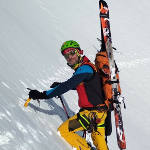 He joined the Institute of Polar Sciences in November 2020 as a Scientist. He got a Master degree in Geology (2009) and a PhD in Environmental Science (2013) during which he honed his skills at the University Center in Svalbard (UNIS). He is a CNR permanent staff since 2001 after working in the technical staff of the Istituto Talassografico in Trieste (2001-2004) and at the Marine Science Institute (2004-2020) in the Climate and Paleoclimate Research Group. Since 2015, he is also Adjunct Professor in Glaciology at the Department of Mathematics and Geosciences of the University of Trieste.
He joined the Institute of Polar Sciences in November 2020 as a Scientist. He got a Master degree in Geology (2009) and a PhD in Environmental Science (2013) during which he honed his skills at the University Center in Svalbard (UNIS). He is a CNR permanent staff since 2001 after working in the technical staff of the Istituto Talassografico in Trieste (2001-2004) and at the Marine Science Institute (2004-2020) in the Climate and Paleoclimate Research Group. Since 2015, he is also Adjunct Professor in Glaciology at the Department of Mathematics and Geosciences of the University of Trieste.
His Research centers around the interactions between the cryosphere (glaciers, permafrost, ice caves) and the climate, spanning from the end of the Last Glacial Maximum to the Holocene. Key research topics are glacial and periglacial geomorphology, glaciology, weather/climate monitoring with a focus on high elevated alpine areas, quaternary geology, ice deposits in caves.
He took part in several scientific expeditions in Antarctica (2015 and 2016) with the British Antarctic Survey, in Pakistan-Karakorum (2013) and in the Chilean Andes (2012). In 2014-2017 was a Council Member of the European Meteorological Society.
Present Responsibilities:
- Italian Representative of the International Permafrost Association
- Scientific Editor of the Journal of Mountain Science (Springer)
- Guest Editor Special Issue Interactions between the Cryosphere and Climate (Change) - Atmosphere
- Topical Editor of the International open-access proceeding s journal Advance in Science and Research
- President of the Alpine-Adriatic Meteorological Society
Scopus - Author ID: 7003357799 ![]() 0000-0001-8344-5723 Google Scholar
0000-0001-8344-5723 Google Scholar
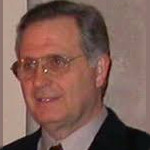 The research of Paolo Cescon is currently focused on three main areas:
The research of Paolo Cescon is currently focused on three main areas:
- Climate impacts on natural and human systems.
- Heavy metal speciation in environmental matrices from areas subjected to various degrees of human activity.
- Chemical contamination on a planetary level.
He is an author of 170 scientific publications in qualified, high impact factor international journals, and has set up important collaborations with many international scientific institutions.
Previous appointments and activities
- Full Professor of Analytical Chemistry at Ca’ Foscari University of Venice
- Member of the Scientific Committee of the National Institute of Health
- National Coordinator of the Section “Chemical Contamination” of the National Program of Scientific Research in Antarctica (PNRA)
- Member of the Scientific Committee of the Ministry of the Environment
- Vice-Rector of Ca’ Foscari University of Venice
- Member of the National Scientific Commission of the PNRA
- Director of the national Centre for Environmental Chemistry and Technologies-CNR
- Director of the Institute for the Dynamics of Environmental Processes-CNR
- Dean of the Faculty of Mathematical, Physical, and Natural Sciences - Ca’ Foscari University of Venice
- Special Commissioner for the Italian Agricultural Research Council (CRA)
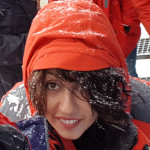 She obtained the Ph.D title in Environmental Sciences in 2013 from the University of Messina and spent six years as postdoctoral researcher at the University of Messina, Department CHIBIOFARAM. Since 2019, she is Researcher at the Stazione Zoologica Anton Dohrn, Department of Marine Biotechnology. Research activities are mainly focused on microbial ecology, specifically focused on prokaryotic diversity, bacterial bioprospecting for the research of marine natural products to be applied in the biomedical and environmental field (in temperate and polar habitats). Particular interest is paid to the association of bacteria with filter-feeding organisms and mainly oriented to the study of bioactive molecules. She has improved her laboratory skills during several stays in foreign institutions, i.e. Karlsruhe Institute of Biotechnology (Germany), and Centro de Ciências do Mar Universidade do Algarve (Portugal).
She obtained the Ph.D title in Environmental Sciences in 2013 from the University of Messina and spent six years as postdoctoral researcher at the University of Messina, Department CHIBIOFARAM. Since 2019, she is Researcher at the Stazione Zoologica Anton Dohrn, Department of Marine Biotechnology. Research activities are mainly focused on microbial ecology, specifically focused on prokaryotic diversity, bacterial bioprospecting for the research of marine natural products to be applied in the biomedical and environmental field (in temperate and polar habitats). Particular interest is paid to the association of bacteria with filter-feeding organisms and mainly oriented to the study of bioactive molecules. She has improved her laboratory skills during several stays in foreign institutions, i.e. Karlsruhe Institute of Biotechnology (Germany), and Centro de Ciências do Mar Universidade do Algarve (Portugal).
She participated to oceanographic cruises in the Mediterranean Sea and to the 34th Antarctic Campaign at the Italian Research Station Mario Zucchelli. She has competence in drafting experimental designs, formulation of research aims and profiling of plans for data collection and analysis, interpretation and presentation of statistical findings, biostatistical analyses. She attended specialized courses on microbial metagenome analysis, cultivation and new-generation molecular methods, liquid chromatography and mass spectrometry methods.
To date, she is involved in research projects on polar topics (Arctic and Antarctic microbiology). She is Topic Editorial Board Member of the open-access journals Environments, and is author or co-author of more than thirty papers in peer-reviewed journals (h-index 10, 284 citations).
Scopus - Author ID: 55619021900
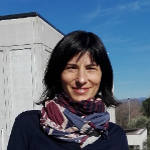 Diploma of Linguistic Maturity. From 2007 to 2018 hired at the CNR with fixed-term contracts of employment, with the professional profile of Collaborator Administration, Level VII, under an agreement between the National Research Council and the Ministry of Environment and Protection of Land and Sea - Directorate General for Environmental Assessments - Division IV (now Division III - Major Risk and Integrated Environmental Authorization) with tasks relating to the organization and management of information flows and documents relating to the procedures ex D. L. gs 152/2006 et seq. L.gs 152/2006 and subsequent amendments and additions relating to AIAs of national competence, with regard to the coordination of both technical and economic-financial activities. Support for the management of information systems dedicated to the conduction of the AIA procedures and use by the public of the relative data.
Diploma of Linguistic Maturity. From 2007 to 2018 hired at the CNR with fixed-term contracts of employment, with the professional profile of Collaborator Administration, Level VII, under an agreement between the National Research Council and the Ministry of Environment and Protection of Land and Sea - Directorate General for Environmental Assessments - Division IV (now Division III - Major Risk and Integrated Environmental Authorization) with tasks relating to the organization and management of information flows and documents relating to the procedures ex D. L. gs 152/2006 et seq. L.gs 152/2006 and subsequent amendments and additions relating to AIAs of national competence, with regard to the coordination of both technical and economic-financial activities. Support for the management of information systems dedicated to the conduction of the AIA procedures and use by the public of the relative data.
From December 2018 permanent member of staff of the CNR with the profile of Collaborator, VII level, under the same Collaborative Agreement.
From September 2019 transferred to the Institute of Polar Sciences, at the Secondary site of Rome Tor Vergata.
 Received his PhD in physics from Heidelberg University in 2011. He has worked in ice core and glaciological research at institutions in Germany, USA and Austria before receiving a Marie Skłodowska-Curie fellowship at the University of Venice (www.unive.it/gold-ice).
Received his PhD in physics from Heidelberg University in 2011. He has worked in ice core and glaciological research at institutions in Germany, USA and Austria before receiving a Marie Skłodowska-Curie fellowship at the University of Venice (www.unive.it/gold-ice).
He has participated in numerous field campaigns on remote glaciers in the European Alps, Kilimanjaro, Greenland and Antarctica. His recent focus lies on ice core research with laser ablation inductively-coupled plasma mass spectrometry (LA-ICP-MS).
The polar atmosphere is characterized by high stability and a the strong thermal inversion that occurs in these regions (the temperature increases with increasing altitude with respect to the ground, as opposed to what happens at mid-latitudes), both phenomena are a consequence of the almost perpetually frozen ground that is often covered with snow and ice. This also applies to the frozen surface of the sea, when covered by ice.
Another important element of the polar atmosphere is the presence of the so-called polar vortex, a swirling motion of the air masses around the pole that keeps the cold polar air masses separate from the warmer ones in mid-latitudes.
Knowledge of the thermodynamic characteristics of the polar atmosphere is fundamental studying the biogeochemical cycles of natural species and long-distance transport processes of atmospheric components from populated areas.
The research activities carried out at ISP are aimed to deepen the knowledge of the processes and the interactions between the different components of the climate system, in particular at the interfaces air-snow-soil and air-sea-sea ice.
Atmospheric composition
The polar regions represent an open laboratory to study the biogeochemical cycles of natural species, the atmospheric chemical transformations in an uncontaminated continent, as well as the transport processes from the middle and low latitudes. Several constituents characterize the atmospheric composition, among which the so-called greenhouse gases (such as water vapor, carbon dioxide and methane whose concentrations are influenced by anthropogenic activities and natural processes), and aerosols are of considerable importance. The latter have a major impact in the polar regions because they are strongly linked to the feedback processes that amplify climate change.
The atmospheric aerosol is composed of particles suspended in the atmosphere, which can be of natural origin (through the lifting by winds of particles from bare or desert surfaces, of marine spumes and of volcanic origin or linked to large fires) or anthropogenic (industrial and fuel emissions). The study of the chemical composition of Antarctic and Arctic aerosols is one of the key points in polar research. These studies are performed through the use of specific chemical tracers, such as water-soluble components, organic acids, sugars, phenolic compounds, amino acids, trace elements or rare earths. Aerosol plays an important role in climate regulation by interacting with solar radiation and modifying the microphysical properties of clouds.
Secondary ISP site in Rome-Montelibretti
Where we are
The secondary site of the Institute of Polar Sciences of Rome - Montelibretti is located at the Rome 1 CNR-Research Area, Provincial Road 35d, km 0.700, 00010 Montelibretti (RM). The ISP staff, working in the Montelibretti Area, have 252 m2 of space (including offices and laboratories) which is distributed between 2 buildings, partly shared with the staff of IRSA (Water Research Institute) and IIA (Institute of Atmospheric Pollution research). Map
How to get here:
- by train: railway line FR1 (Fiumicino-Fara Sabina), get off at the "Pianabella di Montelibretti" stop and proceed for 200 m on foot to the Rome 1 CNR-Research Area.
- by car: the Institute can be reached by car with the possibility of temporary parking within the CNR-Research Area.
- by plane: from Fiumicino airport, take the FR1 railway line (Fiumicino-Fara Sabina), get off at the "Pianabella di Montelibretti" stop and proceed for 200 meters on foot to the Rome 1 CNR-Research Area.
Contact
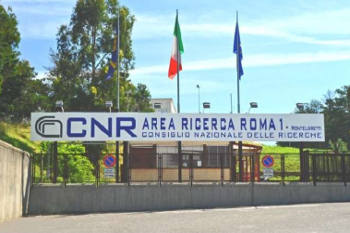 ISP Secondary office of Roma
ISP Secondary office of Roma
Responsable
Dr. Luisa Patrolecco
E-mail: responsabile_rm AT isp.cnr.it
CNR Area della Ricerca di Roma 1
Via Salaria km 29,300 - 00015 Montelibretti (RM)
Phone:+39 06-90672797
Fax: +39 06-90672787
 She is graduated in Ecobiology (LM) from the University of Rome "La Sapienza" and has a PhD in Environmental and Evolutionary Biology from the same university. His research activities are focused on organic contaminants (eg drugs, antibiotics, polycyclic aromatic hydrocarbons, nonylphenols, bisphenol, etc) interactions with natural microorganisms. She gained experience in setting up biodegradation microcosms to evaluate both the environmental persistence of selected contaminants and their effects on natural microbial communities structure and functioning (e.g. PLFA and qPCR analyses).
She is graduated in Ecobiology (LM) from the University of Rome "La Sapienza" and has a PhD in Environmental and Evolutionary Biology from the same university. His research activities are focused on organic contaminants (eg drugs, antibiotics, polycyclic aromatic hydrocarbons, nonylphenols, bisphenol, etc) interactions with natural microorganisms. She gained experience in setting up biodegradation microcosms to evaluate both the environmental persistence of selected contaminants and their effects on natural microbial communities structure and functioning (e.g. PLFA and qPCR analyses).
Recent research activities are focused on the spread of genes that confer resistance to antibiotics (ARGs) among natural microbial communities, and the correlation between this latter with the antibiotic environmental concentrations. She also works on the development and validation of analytical methodologies (e.g. LC-MS / MS) for the determination of organic pollutants in different environmental matrices.
Scopus - Author ID: 57192521577
More...
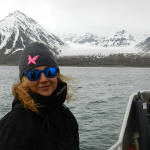 She graduated in Biological Sciences and then obtained a PhD in Polar Sciences in 2003 always at the University of Siena.
She graduated in Biological Sciences and then obtained a PhD in Polar Sciences in 2003 always at the University of Siena.
The main lines of research are aimed at understanding the sources, flows, distribution and fate of persistent and emerging organic contaminants (POPs) in polar and temperate ecosystems. Recent studies are focused on the study of the transfer of emerging POPs between abiotic (water, sediment) and biotic (trophic networks) compartments and between trophic levels; bioaccumulation and biomagnification and related factors; and on the toxicity risk assessment (TEF method, TEQ) in marine food webs, also through the use of sentinel organisms, to assess the risk for humans and for the ecosystem. She promotes the study of protected species or living in protected areas through the use of non-destructive and non-lethal sampling methods. Development and optimization of methods for the determination of emerging organic contaminants.
She has participated in several expeditions to Antarctica as part of the National Research Program in Antarctica and to the Arctic: Svalbard and Greenland, the latest as part of an international project on the effects of climate change on Arctic organisms (TUNU Program: Arctic Ocean Fishes - Diversity, adaptation and conservation '' UiT The Arctic University of Norway).
Scopus - Author ID: 7801563492 ![]() http://orcid.org/0000-0002-1875-6530 Google Scholar
http://orcid.org/0000-0002-1875-6530 Google Scholar
Polar and remote area research is supported not only by permanent stations but also by a series of observatories, that is, by permanent or semi-permanent infrastructures designed to allow for long-term, often automated, measurements.
Eight observatories report to the Institute of Polar Sciences, in various capacities: 6 in polar regions, of which 4 in the Arctic (Climate Change Tower, Gruvedabet and 2 Mooring: Kongfjorden and Storfjorden) and 2 in Antarctica (BSRN Station and Mooring del Ross Sea), and 2 in non-polar regions, of which 1 in the high altitude region (Col Margherita) and 1 in the Adriatic Sea (Mooring Southern Adriatic, MSA).
Most of the scientific activity of the researchers of the Institute of Polar Sciences makes use of three permanent scientific bases located in the polar areas: the Dirigible Italia Station (SDI) located at the Svalbard Archipelago, in the Arctic and the Mario Zucchelli (MZS) and Concordia stations in Antarctica, respectively in the Terranova Bay and at Dome C, on the Antarctic Plateau.
The Dirigible Italia Station is managed by the CNR through ISP. The Mario Zucchelli Station is managed by ENEA for PNRA, while the Concordia base, opened on the basis of a bilateral Italian-French agreement between PNRA (Italy) and IPEV (France), is managed jointly between ENEA and IPEV.
Where we are: the secondary office of the Institute of Polar Sciences of Bologna is located in the Research Area of Bologna. The ISP occupies a total area (offices and laboratories) of about 300 m2, distributed between 2 buildings, that are partly shared with ISAC (Institute of Atmospheric and Climate Science) and ISMAR (Institute of Marine Sciences) staff.
How to find us:
- by train: from Bologna Centrale train station you can take a taxi that will take you to your destination in 5 minutes, or you can take bus nr. 87 or nr. 37;
- by car: from the motorway take the Bologna Arcoveggio exit, from the ring road take exit no. 5, Lame District;
- by plane: from the Guglielmo Marconi airport you can take the Aerobus BLQ shuttle to the railway station, then a scheduled urban bus (as above), or you can take a taxi (cotabo.it, Phone:+39 051-372727 or taxibologna.it, Phone:+39 051-4590) which will take you to your destination in about 10 minutes.
Contact
 ISP Secondary office of Bologna
ISP Secondary office of Bologna
Responsable
Dr Stefano Miserocchi
E-mail: responsabile_bo AT isp.cnr.it
c/o Area della Ricerca di Bologna
Via P. Gobetti, 101 - 40129 Bologna (BO)
Phone:+39 051 6398880
Fax: +39 051 6398939
MAP
 Ministero dell'Universita e Ricerca
Ministero dell'Universita e Ricerca
Programma Ricerche Artico
Programma Nazionale di Ricerca in Antartide
 Ministero degli Affari Esteri e della Cooperazione Internazionale
Ministero degli Affari Esteri e della Cooperazione Internazionale
L'Italia e l’Artico
L’Italia e l’Antartide
CNR-ISP
National Research Council
Institute of Polar Sciences
c/o Scientific Campus - Ca' Foscari University Venice - Via Torino, 155 - 30172 VENEZIA MESTRE (VE)
Phone: +39 041 2348547 - E-mail: protocollo.isp AT pec.cnr.it
Fax: +39 041 2348 549 - Codice Fiscale: 80054330586 - P.I.:02118311006
Unless otherwise indicated, the content of this site is licensed : Attribution Non Commercial Share Alike 4.0 International (CC BY-NC-SA 4.0)
Privacy policy e Cookie policy - Transparent administration (CNR)








